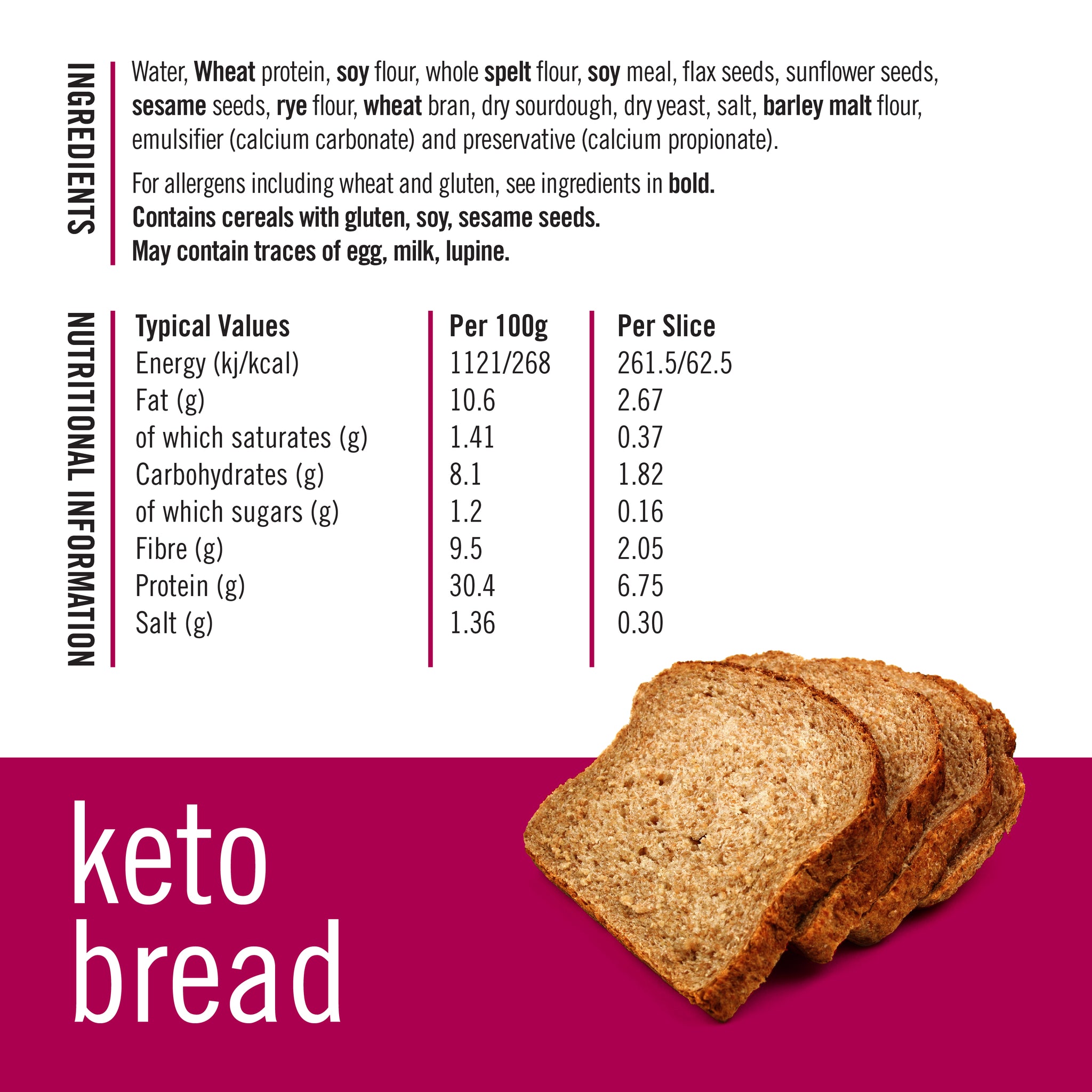Bread and the keto diet have for a long time been considered to be incompatible. Traditional bread is made of refined wheat, and contains lots of carbohydrates. If you’re looking to keep ketosis even a tiny slice of bread may cause harm by causing an increase in blood sugar levels and causing the body to burn more glucose rather than fat. The majority of keto enthusiasts avoided bread altogether, missing out of the convenience and comfort it brought to their every day meals. However, the development of baking techniques is changing the way we eat.
What is the truth behind Ketogenic Diet Bread?
Ketogenic diet isn’t only low-carb and calorie-free, but also a carefully planned. The bakers swap carb-heavy flours such as corn, wheat, and rice with other ingredients such as almond, flaxseed, or coconut meal. They blend the ingredients with egg or plant-based protein to make bread that is rich in nutrition, but almost non-carb. The amount of protein, usually approximately 7 grams per piece, makes this loaf not only keto-compliant, but also assists in eating disorders and muscle repair.

Image credit: fitbakes.co.uk
The seed content is also important. With up to 17% of seeds such as flax or sunflower keto bread offers the benefits of omega-3 fatty acids as well as fiber. These nutrients improve the digestive system, cardiovascular health and satiety, helping those who consume keto food to remain fuller and less hungry. Keto bread is a healthier option for conventional products with low calories that compromise taste.
The role of the lowest Carb Bread in Blood Sugar Management
The bread with the lowest amount of carbs is more than a diet-friendly option it’s a powerful tool for metabolic health. It helps stabilize blood sugar by reducing the surges and crashes that could cause hungry, fatigue and insulin resistance. It isn’t just convenient, but transformative for diabetics. It offers the convenience of bread while maintaining safe glucose levels.
Low carb bread fits perfectly in calorie-conscious diets. At 63 calories for a slice, it lets people to enjoy hearty sandwiches or toast for breakfast without guilt. It’s an excellent tool for those who are trying to shed weight. It can help satisfy your hunger while keeping calories and carbs in check.
Bread on Keto A Practical solution for every day
The expression “bread on keto” does not mean compromise anymore. It’s a chance. Breakfasts could include avocado toast, ketobread with seeds that provides healthy nutrients and fiber in an energizing meal. Lunches in the workplace can consist of turkey and cheese sandwiches but without exceeding the limit of carbs. Even dinners like garlic bread can be accomplished if you use low carb loaves.
The variety of ketogenic loaf is among its biggest strengths. It’s not just a once-in-a-lifetime indulgence. It’s a staple to help make keto lifestyle feasible. It allows you to incorporate it into your everyday meals, removing the restriction which many people feel when they first begin a new diet.
The Reasons Keto Bread Is the Future of a healthy diet
Beyond keto, these breads are defining the future of diets that are healthy generally. They are high in fiber as well as the plant-based protein and omega-rich seed are all components that can be beneficial to everyone, not only those who cut down on carbs. Keto bread is an option for people looking for a healthy alternative to processed white flour.
Unlike diet fads that feel like a temporary fad, keto bread is an evolution in baking. It’s a solution for the problem of being able to eat bread with no carbohydrates, and also provide lasting advantages.
The end of the article is:
The keto diet does not have to be something to fight. Thanks to innovation, ketogenic diet bread delivers the indulgence of a slice without jeopardizing ketosis. Since low-carb bread is widely available it is possible to enjoy sandwiches, toast, and other snacks without fearing that they will violate their low carb targets. Bread that is ketogenic is more than just an alternative. It is now the foundation of modern-day nutrition, linking traditional food choices and healthy lifestyles.
